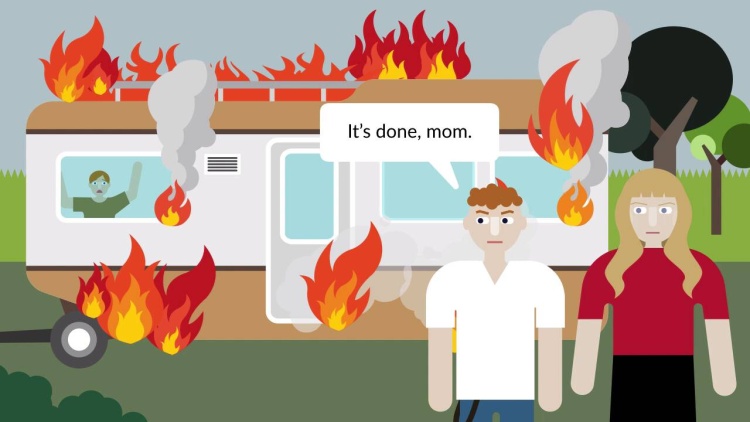Missouri v. Seibert
United States Supreme Court
542 U.S. 600, 124 S. Ct. 2601, 159 L. Ed. 2d 643 (2004)
- Written by Sarah Venti, JD
Facts
Patrice Seibert (defendant) had a 12-year-old son with cerebral palsy, Jonathan, who died of natural causes in the family’s trailer home. Because Jonathan had bed sores, Seibert feared that she would be charged with child abuse if the sores were discovered during an autopsy. She devised a scheme to burn down the trailer with Jonathan’s body inside to destroy his corpse. She also left Donald Rector, a mentally ill teenager living with the family, inside the trailer to avoid the appearance that Jonathan had been left unattended. Seibert directed her other son, Darian, to set the fire. Donald perished in the fire. Police officers arrested Seibert and took her to the police station for interrogation about the deaths of Jonathan and Donald. After deliberately not reading Miranda warnings to Seibert, the officers obtained a confession in which Seibert admitted to leaving Donald inside the trailer before the fire was set. Around 20 minutes after obtaining Seibert’s first confession, the officers advised Seibert of her Miranda rights, which she waived. After reminding Seibert that she previously had confessed, the officers obtained a second confession. The State of Missouri charged Seibert with Donald’s murder. Seibert filed a pretrial motion to suppress both confessions as Miranda violations. The trial court suppressed the first confession but not the second. A jury convicted Seibert of second-degree murder. She appealed to the Missouri Court of Appeals, which affirmed her conviction. She then appealed to the Missouri Supreme Court, which held that her second confession violated Miranda and should be suppressed. The state successfully petitioned the United States Supreme Court.
Rule of Law
Issue
Holding and Reasoning (Souter, J.)
Concurrence (Kennedy, J.)
Concurrence (Breyer, J.)
Dissent (O’Connor, J.)
What to do next…
Here's why 904,000 law students have relied on our case briefs:
- Written by law professors and practitioners, not other law students. 47,100 briefs, keyed to 995 casebooks. Top-notch customer support.
- The right amount of information, includes the facts, issues, rule of law, holding and reasoning, and any concurrences and dissents.
- Access in your classes, works on your mobile and tablet. Massive library of related video lessons and high quality multiple-choice questions.
- Easy to use, uniform format for every case brief. Written in plain English, not in legalese. Our briefs summarize and simplify; they don’t just repeat the court’s language.





